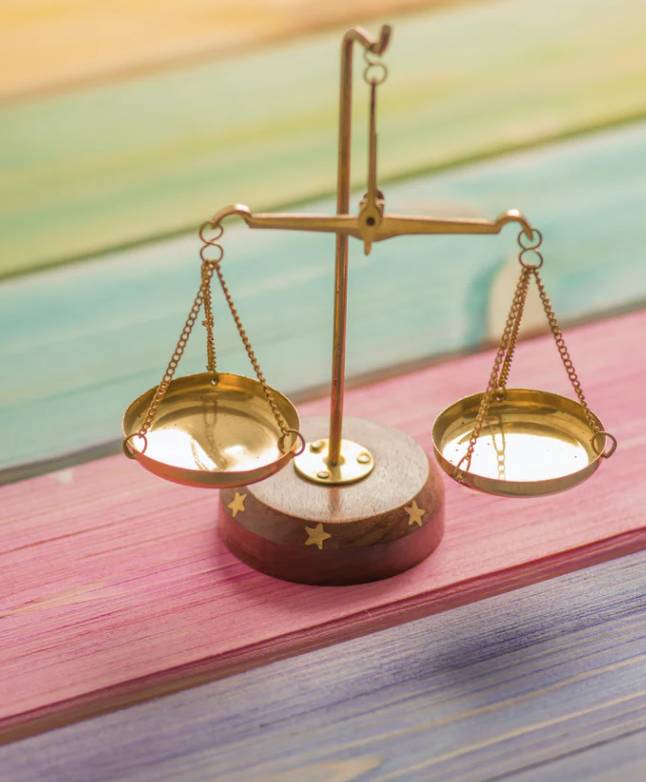
Summary: How do you stand for what you believe is right and be heard? Speaking truth to power takes courage and determination. Here are some thoughts to consider when you make your own decision.
Dear Dr. Sylvia,
I built a remarkable career over the past 15 years. I was considered a high potential emerging leader, and now I am seen as a full-blooded, really great leader.
However, the changes during this past year have me in a quandary.
Here’s the issue: in my organization, some follow protocol, and then some fight against it. Some think about what is suitable for everyone. Others only are concerned about themselves.
How to get those in opposing “camps” to come to agreement.
Like everything else, there is a ‘team yes ‘and a’ team no.‘
This conflict is not an excellent way to lead when points of view are super strong. For example, the tension often leads to nasty comments (usually behind people’s backs).
In any case, there is an on-site meeting coming up that my boss planned (I’m a senior VP). This gathering is the first meeting in person, and we are at a crossroads with what to do.
To clarify, my boss is a no-masker. He believes in individual freedom.
The debate with my team is whether to go to the meeting or connect via Zoom. My team is nine people.
Furthermore, They also think I should decide for my team since I am their boss.
Therefore, they are looking to me to sort out what to do.
I believe we should all comply with masks. However, my boss is a strong-willed type who wants his way.
In the same vein, he doesn’t like the truth to power types.
How do you take on a strong-willed opponent?
On the other hand, is it better to align with the boss and not wear a mask? If you were in this position, would you go and wear a show because it’s the right thing to do? Or demand the Zoom option?
In addition, I am so annoyed that we have to spend time sorting out the yes-no groups that real work is not getting done.
To sum up, I love my job. Most importantly, I get along most of the time with my boss. As you can guess, I often prefer to avoid significant conflicts.
I appreciate some concrete answers.
Thanks,
Befuddled

Dear Befuddled,
These mask/vaccine issues are tearing teams apart.
Above all, here is an essential question about what freedom entails. Likewise, another question about are we, or are we not, meant to be our brother’s and sister’s keepers?
How do you sort out who to listen to when your heath is at stake?
I want to take this to a more significant issue. I suggest you read a play written in 1882 and is now, once again, front and center. It is about personal responsibility, speaking truth to power, and is vitally important to discuss.
The play, written by a Norwegian author at its heart, argues against respecting authority without questioning its aims.
“An Enemy of the People” is NOT a happily ever after play.
Interestingly, this classic has resurfaced over the last several years. It is a variation of today’s conflicts as we struggle with the same issue of authority and aims.
Here is the basic plot: There was a vast natural water bathing complex. Today we would call it a healing spa. This was the primary source of income for a small town. It brought in visitors and money so that they could live a comfortable life.
The town doctor found the reason people were getting sick. The link was to the bath’s drainage system, which was seriously contaminated.
He alerted members of the community, who thanked him.
So far, so good!
Are YOU willing to stand up and speak out when it is uncomfortable?
AH, the plot thickens.
The mayor (who was also the physician’s brother) told him he must retract his statements. The rationale was that the repairs were too expensive for the townspeople to pay.
The people needed the tourists, and he should keep his mouth shut.
What would you do?
What are the consequences to either speak out or shut up?
It’s not as easy as you think to speak truth to power.

Just ask some of the whistleblowers who have suffered from speaking out.
What is the cost of being a “whistle-blower?
Check out Erin Brockovich, who blew the whistle about the contamination from PG&E in 1993, and Jeffrey Stephen Wigand, who blew the whistle on nicotine in the tobacco industry in 1995.
Also, consider Frank Serpico, who, in 1970, spoke out about systemic corruption in NYPD. At age 84, he remains vocal in speeches, articles, and activist campaigns.
Here is my best thought to help you decide what to do.
Spend some quiet time as you look at your life. Think about those who speak out and tell the truth to power. How do you want to be remembered? What will you say you did that was courageous and worth speaking out about?
Right now, we are in a divided country. What can you do to help heal that divide?
Since you are the leader, your voice counts.
I know what I would do. What about YOU?
Think about the type of world you want for generations to come.
What are the consequences of talking truth to power?
And what about YOU and YOU and YOU?
I’d love to hear your thoughts.
To your success,
Sylvia
PS. I suggest you take the Leadership Success Quiz. Find out what behaviors and patterns are keeping you from talking out and following your conscience.


